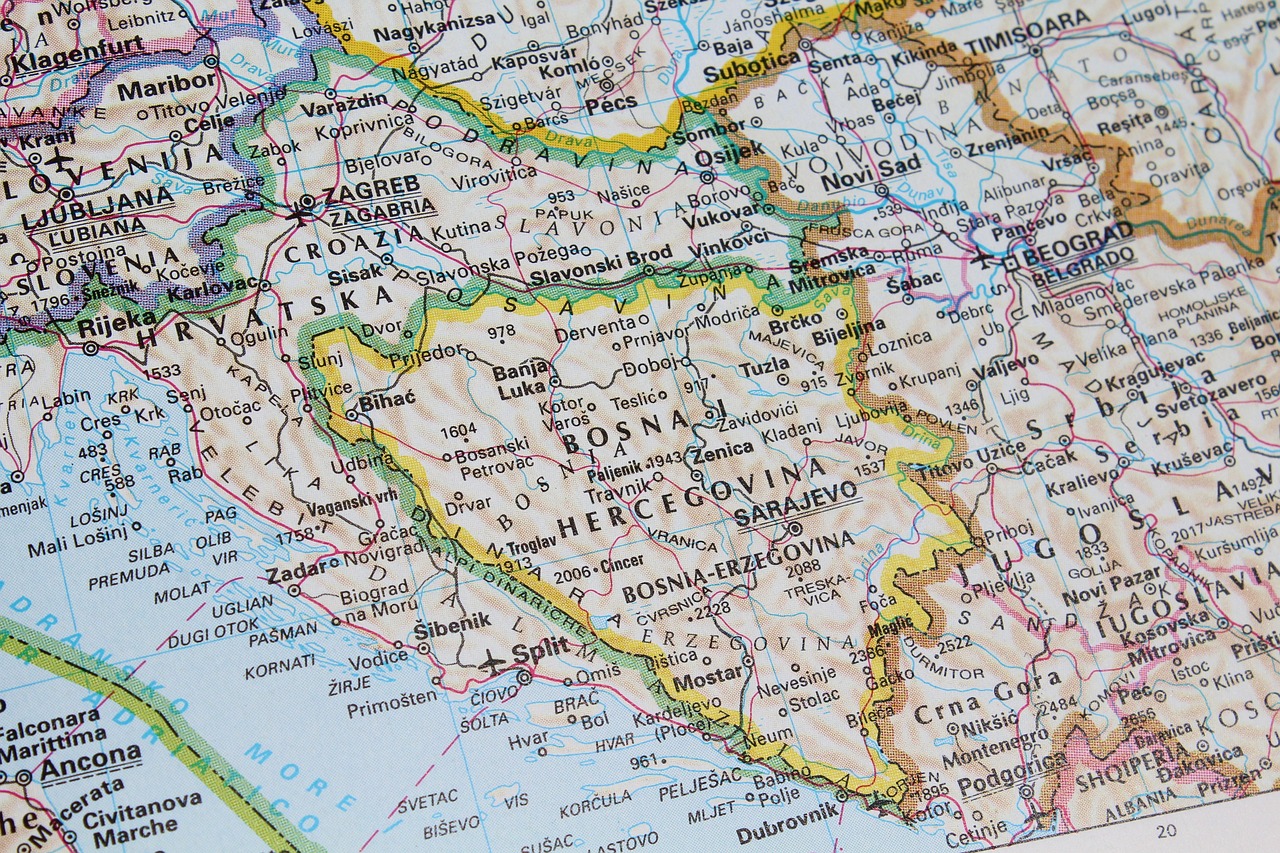Bosnia Video
Cultural Etiquette: Doing Business in Bosnia
Bosnia and Herzegovina, often referred to as Bosnia, is a country located in the Balkan Peninsula of Europe. With a rich history and diverse cultural heritage, Bosnia offers unique opportunities for business interactions. However, it is essential to understand and respect the cultural etiquette when conducting business in this region. This article aims to provide a comprehensive guide on the cultural norms and practices that should be observed while doing business in Bosnia.
Business Culture
Bosnia has a hierarchical business culture where respect for authority and seniority is highly valued. When entering a business meeting or negotiation, it is customary to greet the most senior person first. Handshakes are the most common form of greeting, and it is important to maintain eye contact while doing so. Business attire is typically formal, with men wearing suits and ties, and women opting for conservative and professional attire.
- Punctuality: Being punctual is crucial in Bosnian business culture. It is expected that you arrive on time for meetings and appointments. However, it is not uncommon for Bosnians to be slightly late, so it is advisable to be patient and flexible.
- Formalities: Addressing people with their appropriate titles and surnames is essential. It is customary to use “gospodin” (Mr.) or “gospođa” (Mrs.) followed by the individual’s surname. Wait for your Bosnian counterparts to initiate using first names.
- Business Cards: Exchanging business cards is a common practice in Bosnia. Ensure that your business card includes your job title and any relevant qualifications. When receiving a business card, examine it briefly before placing it on the table in front of you.
- Gift Giving: While not mandatory, giving small gifts to your Bosnian business partners is appreciated. Gifts should be of good quality and not overly extravagant. It is advisable to present gifts at the end of a successful business transaction or meeting.
Communication
Communication style in Bosnia is generally direct and formal, emphasizing respect and politeness. It is important to maintain a professional demeanor and avoid confrontational or aggressive behavior. Here are some key points to consider:
- Language: The official languages of Bosnia are Bosnian, Croatian, and Serbian. English is widely spoken in the business community, especially among younger professionals. However, it is recommended to have a local interpreter present for important meetings.
- Non-Verbal Communication: Non-verbal cues, such as facial expressions and body language, play a significant role in communication. Maintain eye contact while speaking and listening, and avoid excessive gesturing or physical contact.
- Directness: Bosnians appreciate directness in communication. It is important to be clear and concise in your statements, avoiding excessive small talk or beating around the bush.
- Listening: Active listening is crucial in Bosnian business culture. Show genuine interest in what your counterparts are saying and avoid interrupting them. Taking notes during meetings is considered a sign of attentiveness.
Negotiation and Decision Making
Negotiations in Bosnia can be a lengthy process, as building trust and establishing personal relationships is crucial. Here are some key points to consider when engaging in negotiations:
- Patience: Bosnians value patience in negotiations. Rushing the process may be seen as disrespectful or untrustworthy. Be prepared for multiple rounds of negotiations and avoid putting pressure on your Bosnian counterparts.
- Hierarchy: Decision-making processes often involve multiple levels of hierarchy. It is important to identify the key decision-makers and establish relationships with them. Decisions are typically made collectively, and consensus-building is important.
- Agreements: Written agreements are essential in Bosnia. Ensure that all terms and conditions are clearly stated and agreed upon by both parties. It is advisable to have legal counsel review any contracts or agreements before finalizing them.
- Flexibility: Being open to compromise and showing flexibility during negotiations is appreciated. Bosnians value win-win solutions and may be more willing to make concessions if they feel their needs are being met.
Business Meetings and Socializing
Business meetings in Bosnia often involve a mix of formal discussions and casual socializing. It is important to build personal relationships and establish trust with your Bosnian counterparts. Here are some key points to consider:
- Relationship Building: Take the time to get to know your Bosnian counterparts on a personal level. Engage in casual conversations about family, hobbies, and cultural interests. Building a personal connection can greatly enhance business relationships.
- Meals and Hospitality: Inviting your Bosnian counterparts for a meal or coffee is a common practice. Be prepared to host or be hosted. It is customary to offer food and drinks during meetings, and refusing hospitality may be seen as impolite.
- Gifts and Souvenirs: When invited to someone’s home, it is customary to bring a small gift or souvenir. Flowers, chocolates, or a bottle of wine are appropriate choices. Avoid giving alcohol if your hosts do not consume it for religious or personal reasons.
- Follow-Up: After a business meeting or negotiation, it is important to send a follow-up email or letter expressing gratitude and summarizing the key points discussed. This shows professionalism and reinforces the relationship.
Image 1: Bosnia

Legal and Ethical Considerations
When doing business in Bosnia, it is crucial to adhere to legal and ethical standards. Familiarize yourself with the local laws and regulations governing business activities. Here are some important considerations:
- Corruption: Bosnia has made significant efforts to combat corruption, but it still remains a challenge in some sectors. Avoid engaging in corrupt practices and ensure that your business dealings are transparent and ethical.
- Intellectual Property: Protecting intellectual property rights is important in Bosnia. Registering trademarks, patents, and copyrights can help safeguard your business interests. Consult with local legal experts to navigate the intellectual property landscape.
- Data Protection: Ensure that your business complies with data protection laws in Bosnia. Safeguarding personal and sensitive information is crucial for maintaining trust with your Bosnian counterparts.
- Environmental Regulations: Bosnia has various environmental regulations in place. Ensure that your business activities comply with these regulations to avoid any legal or reputational issues.
Image 2: Bosnia

Conclusion
Doing business in Bosnia requires a deep understanding of the cultural etiquette and norms. By respecting the hierarchical structure, maintaining direct and polite communication, and building personal relationships, you can navigate the Bosnian business landscape successfully. Remember to be patient, flexible, and open to compromise during negotiations. Adhering to legal and ethical standards is essential for long-term business success in Bosnia.
Image 3: Bosnia

References
– Invest in Bosnia and Herzegovina: investinbih.ba
– World Business Culture: worldbusinessculture.com
– Chamber of Commerce of the Federation of Bosnia and Herzegovina: komorafbih.ba


